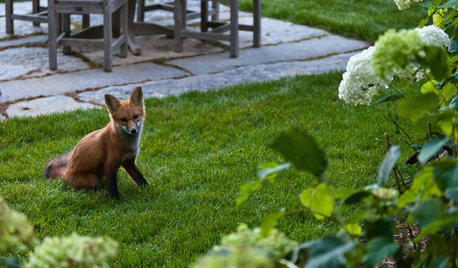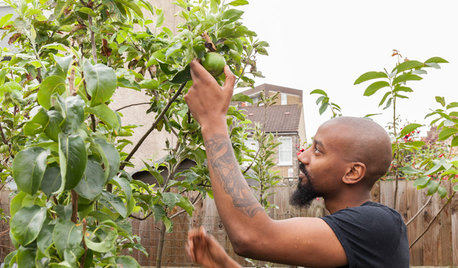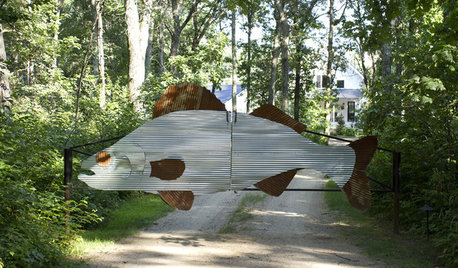Cow, Horse, Alpaca Poop
jxa44
15 years ago
Related Stories

GARDENING GUIDESThe Poop Scoop: Enrich Your Soil With Good Old Manure
Get over the ick factor already — this natural super-ingredient for soil has so many benefits, you'll wonder why you ever went chemical
Full Story
FUN HOUZZThe Cutest Darn Animals on Houzz
You might end up admiring these horses, goats, llamas and more until the cows come home
Full Story
GARDENING GUIDESLush, Foodie Abundance in a Small Urban Garden
This modest backyard garden provides its owner with fruit and vegetables all year round, thanks to an innovative low-maintenance approach
Full Story
FUN HOUZZ11 Ways to Have More Fun at Home
Every house needs a touch of humor — a funny sign or an accessory that always makes you smile. Here’s where to begin
Full Story
GARDENING GUIDESGet on a Composting Kick (Hello, Free Fertilizer!)
Quit shelling out for pricey substitutes that aren’t even as good. Here’s how to give your soil the best while lightening your trash load
Full Story
BATHROOM WORKBOOK8 Elements of a Farmhouse-Style Bathroom
Go simple, repurposed and vintage for a farmhouse-style bath with the comforts of today
Full Story
GROUND COVERSGive Your Lawn a Taste of the Wild
Consider the joys of an irregularly trimmed meadow lawn: It’s ecofriendly, visually interesting and still good for romping
Full Story
FUN HOUZZThere's a Mouse in the House
No need for 'eek' and capture schemes. These mouse toys, decals and artistic renderings have all the trappings of cute
Full Story
FUN HOUZZ31 True Tales of Remodeling Gone Wild
Drugs, sex, excess — the home design industry is rife with stories that will blow your mind, or at least leave you scratching your head
Full Story
FEEL-GOOD HOMESimple Pleasures: The Joy of Fresh Sheets
Make your bed a place of comfort and relaxation with good-quality linens, ample pillows and other pleasing accoutrements
Full StorySponsored
More Discussions










Kimmsr
jxa44Original Author
Related Professionals
Rancho Palos Verdes Landscape Architects & Landscape Designers · Aurora Landscape Contractors · Battle Ground Landscape Contractors · Clayton Landscape Contractors · Dinuba Landscape Contractors · East Haven Landscape Contractors · El Sobrante Landscape Contractors · Gainesville Landscape Contractors · Old Saybrook Landscape Contractors · Palos Verdes Estates Landscape Contractors · Secaucus Landscape Contractors · Tewksbury Landscape Contractors · Whitehall Landscape Contractors · Winter Gardens Landscape Contractors · Crowley Landscape Contractorsjxa44Original Author
Kimmsr
jxa44Original Author